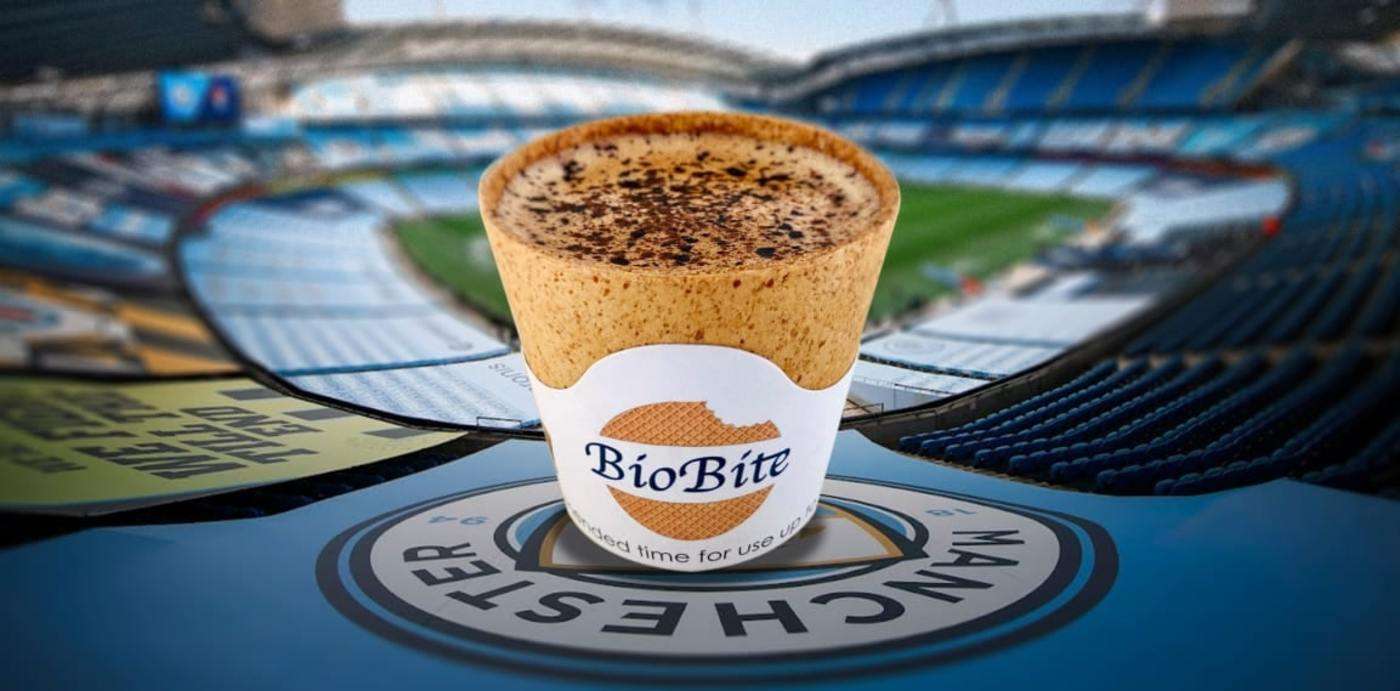Buy Some Wind Power With Your Furniture? IKEA is Now Selling Renewable Energy
IKEA is combating emissions wherever they can be found, now offering Swedish customers green electricity services, and selling solar panels.

Manchester City are the reigning champions of the English Premier League, and now they're championing the cause of landfill waste by offering edible coffee and tea cups at their 55,000 seater Etihad Stadium.
After suffering a reversal at the hands of London's Tottenham Hotspur F.C. on the opening weekend, seven days later they played their first home match of the season, drumming Norwich City 5-0 while producing 0 pounds of disposable hot drinks cups-a plague in a tea/coffee loving country where a staggering 2.5 billion disposable cups are used every year.
"For the first time on Campus, an 'edible coffee cup' will also be introduced. This fantastic and innovative solution provides an amazing solution to waste, just eat your cup," reads a statement from the Etihad Stadium.
The cup is made by a Scottish startup called BioBite, and is essentially a 100-calorie vegan biscuit in the shape of a cup. Made with wafer in much the same way as an ice cream cone, the cup will stay leak-proof for 12 hours, and even more amazingly, crunchy for a full 45 minutes, which for the American readers is exactly and always one-half the duration of a ‘football' match.
According to the company's website, the cup is fully recyclable, but the taste of coffee-soaked wafer cup is actually delectable. The football club is also offering fully recyclable beer cups made of recycled paper and cardboard.
There are several problems with making a fully recyclable paper takeaway hot drinks cup, and it's why there still isn't one today in the largest beverage chains.
The combination of a heatproof inner lining and paper together make the cups very tricky to recycle, as the two very different materials must be separated.
Edible cups truly might be the best solution, provided firms like BioBite can bring the cost-per-unit down. 240 of their biscuit cups cost $111 before VAT, about 14 cents more than what Starbucks pays for the cup, the plastic lid, and the wood stirrer.
Other firms are closer to the mark, like Bulgarian edible coffee cup maker Cupffee, who make a 40 cent (including taxes) wafer cup with about the same properties as BioBites. For eco-conscious consumers, the lack of lid is not an issue provided they enjoy the coffee on foot. It's well-suited to European city centers made for walking about, but rather inconvenient in most of America, set up as the country is for driving.
Another limiting factor is that a wafer is not exactly the fuel of a healthy society.
If there were a company that could make the wafers out of some kind of vegetable fiber, something many western diets are nutritionally deficient in, then you're talking about a real revolution.
SEND This Story Straight to the Goals of Friends' News Feeds…
Be the first to comment